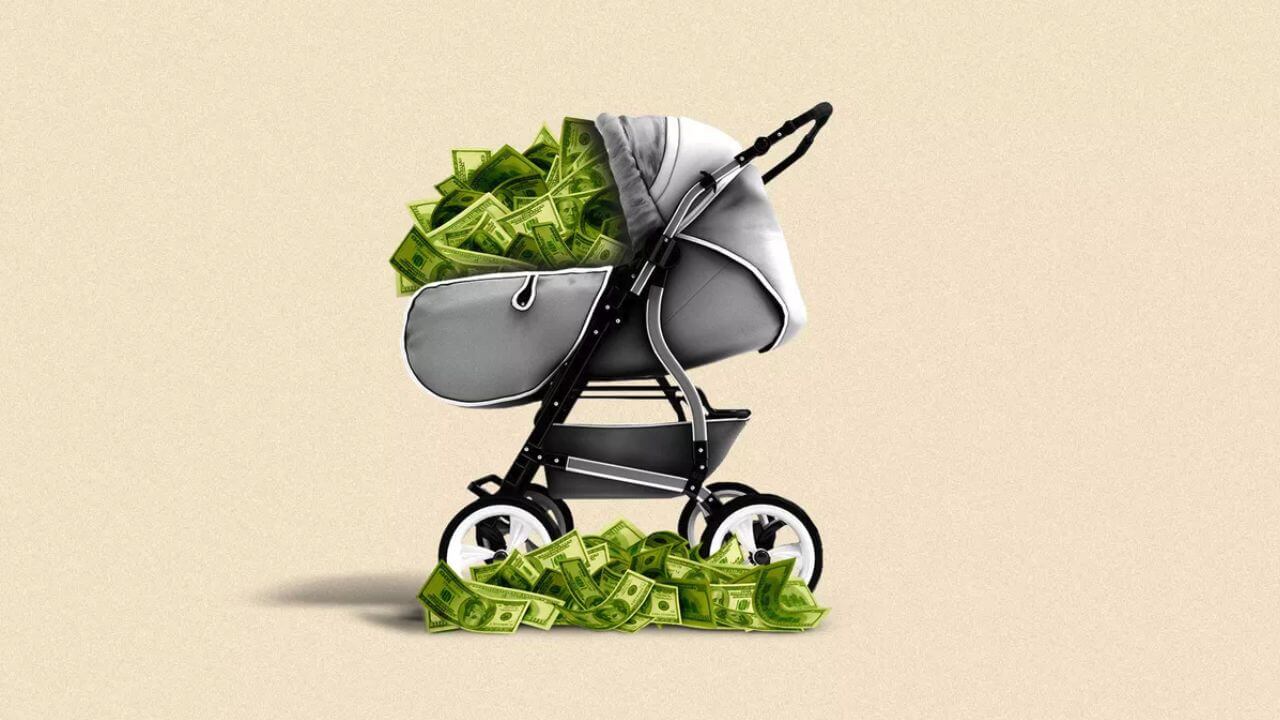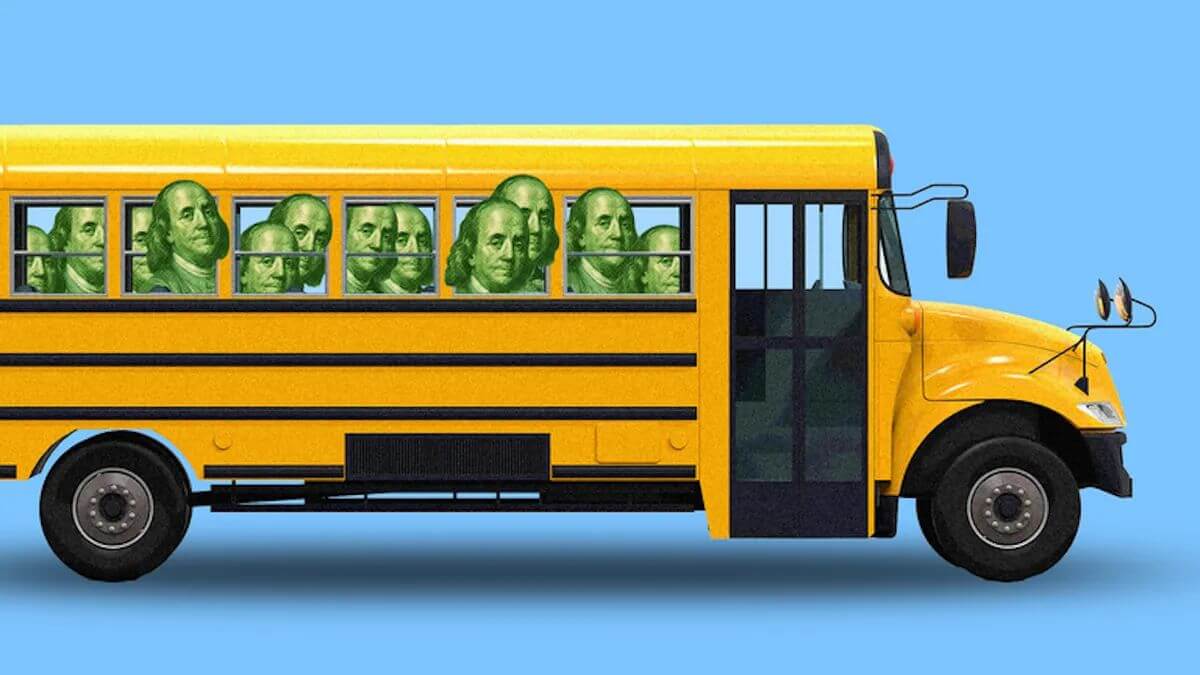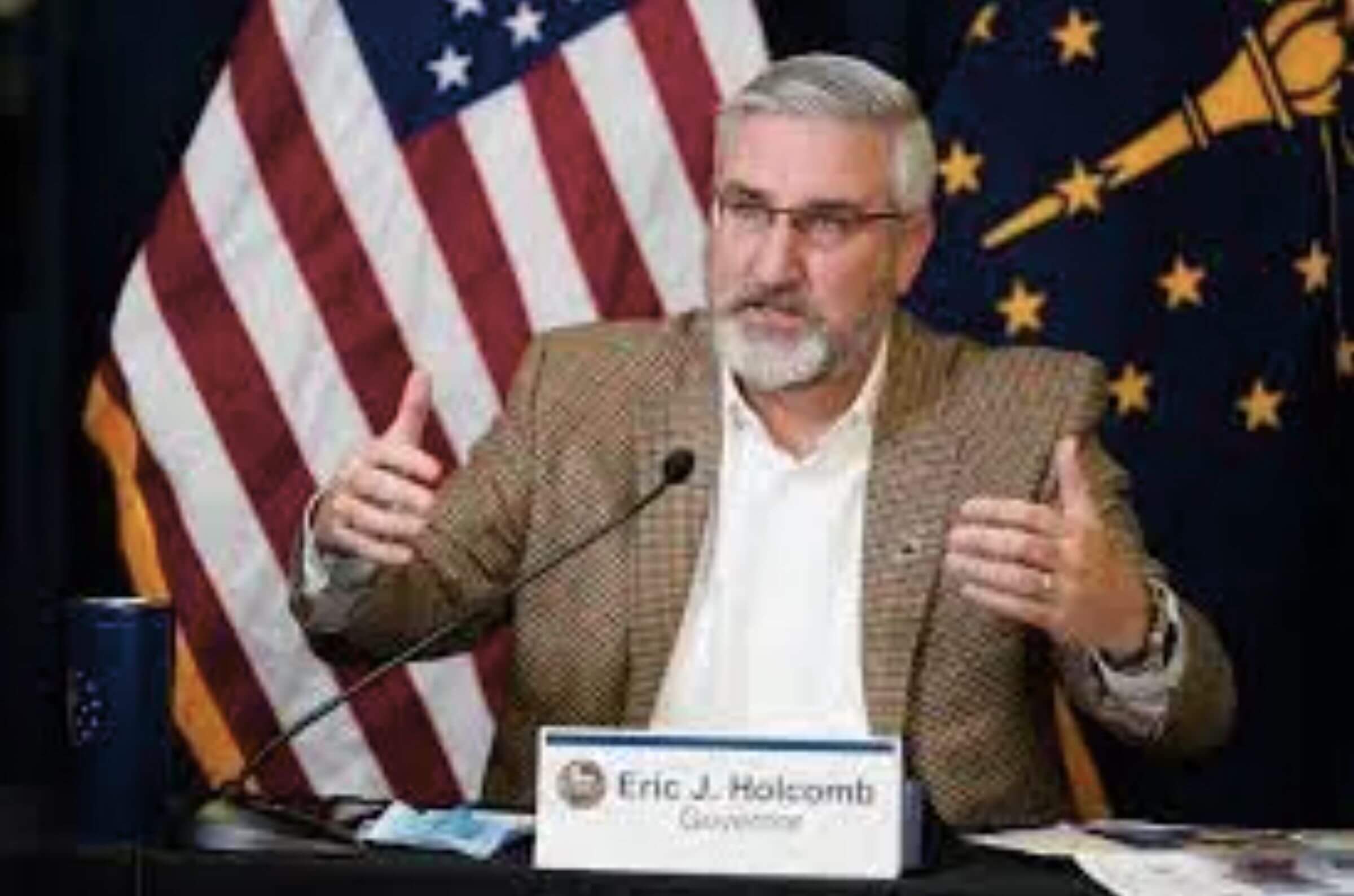11/6 Torchbearer Weekly Policy Update
Welcome back! We hope you enjoyed your weekend. Thank you for allowing us to be your trusted source for news at the local, state, and federal levels.
Local, state, and federal highlights in this week’s memo include:
- Speaker Announces Updated House Standing Committee Appointments
- Charted: The Child Care Cost Surge
- New Local Health Initiatives Taking Shape Across Indiana As Novel State Funding Becomes Available
- Trump Endorses Mike Braun In Indiana Governor’s Race
- OECOSL Award $8.7M In Expansion Grants To Early Education Providers
- Indiana Treasurer Elliott Heavily Invests Indiana Funds In Israel
- New IU Study Highlights Billions In Annual Losses From Untreated Mental Illness In Indiana
- U.S. Adds 150k Jobs In October As Labor Market Cools
- Holcomb One of 15 GOP Governors Against Minimum Nursing Home Staffing
- Share the Torchbearer Newsletter with Your Network!
- Important Dates
Let’s dive in.
Speaker Announces Updated House Standing Committee Appointments

Breaking: House Speaker Todd Huston (R-Fishers) released updated House standing committee appointments for the 123rd General Assembly.
What’s new: State Rep. Chris Jeter (R-Fishers) will serve as chair of the House Judiciary Committee and State Rep. Jerry Torr (R-Carmel), who recently announced his plans to retire at the end of his two-year term, will serve as vice chair.
State Rep. Stephen Bartels (R-Eckerty) will serve as chair of the House Veterans Affairs and Public Safety Committee, and State Rep. Joanna King (R-Middlebury) will serve as vice chair.
State Rep. Chris Judy (R-Fort Wayne) will serve as vice chair of the House Family, Children and Human Affairs Committee.
State Rep. Jennifer Meltzer (R-Shelbyville) will serve as vice chair of the House Courts and Criminal Code Committee.
New caucus member State Rep. Lori Goss-Reaves (R-Marion) will serve on the House Committee on Public Health, the House Family, Children and Human Affairs Committee, and the House Committee on Insurance. State Rep. Alex Zimmerman (R-North Vernon), also a new caucus member, will serve on the House Veterans Affairs and Public Safety Committee, the House Utilities, Energy and Telecommunications Committee, and the House Roads and Transportation Committee.
Click here to download the complete list of House standing committee appointments. (Indiana House Republicans)
Charted: The Child Care Cost Surge

The average child care payment is up 32% from 2019, according to new data from the Bank of America Institute.
- The price surge outpaced overall inflation; the Consumer Price Index was up 20% over the same period, Emily writes.
Why it matters: Rising costs pose a threat to the remarkable progress that women, particularly mothers, have made in the U.S. labor force.
- The report found that cost increases might be driving some parents out of the workforce to look after their children. (Typically, it's women who wind up dropping out for child care reasons, but the BofA data doesn't look at gender.)
Zoom in: The report looked at anonymized data from 68 million Bank of America accounts, and analyzed those where customers paid for child care.
- To understand if some parents left the workforce, researchers analyzed the number of paychecks those households receive — it's a way of finding dual-income households — and found fewer today compared with 2019.
Go deeper: The average family with child care costs spent more than $700 on it during September.
- That's cutting into other things. Since May 2023, families who pay for child care have been spending at a slower pace than other households — and dipping into savings at a higher rate.
- Still, households' overall savings are much higher than 2019 levels, notes Anna Zhou, an economist at BofA who worked on this report. "They're still financially OK."
What to watch: This data doesn't cover what's happened since the end of September, when pandemic-era federal child care funding ran out. Most observers expect costs to rise even further; and for some providers to go out of business.
- The Biden administration has asked Congress for $16 billion in new child care funding — part of an overall request for domestic spending. (Axios)
New Local Health Initiatives Taking Shape Across Indiana As Novel State Funding Becomes Available

Local health officials across Indiana are gearing up to receive their share of a historic wave of state funding meant to increase disease prevention efforts and improve Hoosiers’ overall well-being.
Why it matters: The new state funds will significantly boost Indiana's public health investment, which has been below the national average.
The big picture: The funding will be used for tobacco prevention, chronic disease prevention, trauma and injury prevention, referrals to clinical care, and maternal and child health.
What's next: The funds will be disbursed to counties on or after Jan. 1, and counties will need to submit annual financial reports and performance indicators. (Indiana Capital Chronicle)
Trump Endorses Mike Braun In Indiana Governor’s Race

In a statement on Truth Social, former President Donald Trump endorsed U.S. Sen. Mike Braun as the next governor of Indiana, praising his support for law enforcement, border security, and opposition to woke fascism.
Why it matters: Trump's endorsement is significant as Braun competes in a crowded primary of prominent Republicans vying for the party's nomination in 2024.
The big picture: Braun, a businessman turned politician, aligns with Trump's America First conservative economic agenda and shares concerns about the direction of the country.
What's next: Braun's endorsement by Trump sets the stage for a competitive and potentially expensive primary election. (IBJ)
OECOSL Award $8.7M In Expansion Grants To Early Education Providers

The Family and Social Service Administration’s Office of Early Childhood and Out-of-School Learning awarded more than $8.7 million to child care providers to expand access to high-quality early education for Hoosier families.
Why it matters: This Child Care Expansion Grant will help high-quality providers grow their businesses and serve more children and families, particularly in underserved areas of Indiana.
By the numbers: OECOSL awarded 21 grants to 11 centers, four ministries, four homes, and two public schools, adding 1,572 child care seats in 18 Indiana counties.
The big picture: The first five years of a child’s life are the most significant to build a strong foundation for future success.
What's next: Additional grants may be awarded. (FSSA)
Indiana Treasurer Elliott Heavily Invests Indiana Funds In Israel

Indiana State Treasurer Daniel Elliott announced a significant purchase of Israel funds to support the U.S. ally.
Why it matters: This investment reflects confidence in the Israeli people and economy.
By the numbers: Indiana's investment in Israel increased from $65 million to $100 million.
What they’re saying: “Israel is our most important ally in the world. This investment reflects the confidence that I have in the Israeli people and the Israel economy,” said Elliott in a release. “… October 7th remains one of the darkest days in the history of the word. Yet, I remain confident that Israel will prevail over the forces of evil. This bond purchase reflects the confidence we have in Israel’s victory and the strength of their marketplace.”
The big picture: The purchase of Israel bonds shows support for Israel's victory and the strength of their marketplace. (Indiana Capital Chronicle)
New IU Study Highlights Billions In Annual Losses From Untreated Mental Illness In Indiana

Untreated mental illness in the Hoosier state comes at a cost of more than $4 billion a year, according to a new Indiana University study.
Why it matters: Hoosiers who do not receive treatment for mental illness are more likely to experience other chronic health conditions, such as diabetes and cardiovascular disease.
By the numbers: The economic burden of untreated mental illness in Indiana is estimated to be $4.2 billion annually, including $3.3 billion in indirect costs and $708.5 million in direct health care costs.
The big picture: Untreated mental illness represents a significant public health and financial challenge for Indiana.
Yes, but: Individuals who do not receive treatment for mental illness are also more likely to experience other debilitating physical health conditions.
What they're saying: "These costs represent a significant public health and financial challenge for our state," said Heather Taylor, lead author on the study.
What's next: The research will be used to support the creation of a new mental health care system in Indiana. (Indiana Capital Chronicle)
U.S. Adds 150k Jobs In October As Labor Market Cools

Employers slowed their hiring and the unemployment rate edged up in October, the Labor Department said Friday.
Why it matters: After roaring growth through the summer months, the red-hot U.S. labor market cooled as fall began.
- Federal Reserve officials have worried that continued strong growth could endanger their ability to bring inflation down further. The new figures should lessen those worries.
Driving the news: There were 150,000 jobs added last month, dropping from a revised 297,000 in September.
- The jobless rate rose to 3.9%, from 3.8% in September. It has been below 4% for 21 straight months.
Of note: The change in the unemployment rate was accompanied by drops in the share of adults participating in the labor force, and the share of adults working dropped by 0.2 percentage points, unwelcome signs for labor supply.
By the numbers: The government also revised August and September job growth downward, showing a combined 101,000 fewer positions added those months than previously reported.
- Average hourly earnings rose 0.2% in October and were up 4.1% over the past 12 months, showing deceleration.
- The strongest gains were in the health care sector, which added 77,000 jobs.
- The job growth numbers were depressed by the now-resolved autoworkers strike, which caused a drop of 33,000 jobs in manufacturing of motor vehicles and parts. (Axios)
Holcomb One of 15 GOP Governors Against Minimum Nursing Home Staffing

What’s new: 15 GOP governors, including Gov. Eric Holcomb, signed a letter opposing the federal government's proposed nursing home staffing requirements.
Why it matters: Low staffing can lead to poor care in nursing homes, as evidenced by dire conditions and a lawsuit claiming that poor staffing contributed to the rape and murder of a resident.
The big picture: One reason for low staffing is that county hospitals, which have purchased most of Indiana's nursing homes, divert Medicaid funds. Advocates suggest that mandatory minimum staffing requirements can improve care, but Gov. Holcomb prefers managed care as a solution.
Yes, but: Many county hospitals refuse to disclose how they spend nursing home funds, creating a lack of transparency.
What's next: IndyStar has filed a lawsuit to obtain information on how county hospitals spend their supplemental nursing home funds. (Indy Star)
Share the Torchbearer Newsletter with Your Network!

Not signed up for our weekly newsletter? Sign up today!
Important Dates

Monday, November 13th - Health Care Cost Oversight Task Force @12:00 pm
Tuesday, November 14th - Land Use Task Force @ 9am
Wednesday, November 15th - Funding Indiana’s Roads for a Stronger, Safer Tomorrow Task Force @ 10am
Wednesday, November 15th - State Fair Advisory Committee @ 10am
Wednesday, November 15th - Medicaid Oversight Committee @ 2pm
Monday, November 20th - State and Local Tax Review Task Force @ 10am
Tuesday, November 21st - Organization Day
Thursday, November 30th - Government Reform Task Force @ 12pm
Monday, January 8th - Anticipated 2024 legislative session start date
